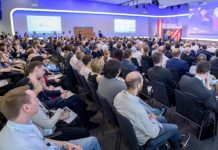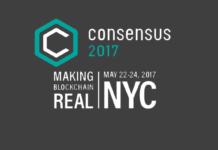
Today, more than ever, Europe has a unique opportunity to become a global technology leader in Advanced Manufacturing.
Despite the political voices that place Europe squeezed between the preponderance of the United States and the growing influence of China, Europe’s industrial reality is promising. Advanced Manufacturing made in Europe, is built on a strong industrial base and decencies of manufacturing technology leadership, achieved through innovation and efficiency. The German National Platform Industry 4.0 defined in 2013, was the first common project involving the major industrial players and their representative trade associations. This was followed by the French Alliance Industry of the future in 2015 and thereafter, no less than fifteen national initiatives for digitizing industry have been launched across Europe with several more were in preparation.
Industry 4.0 is the European approach to maintaining and developing further its global leadership in Advanced Manufacturing. Based on 3 main pillars – Autonomy, Sustainability, Interoperability -, it was from the start conceived as a holistic approach to shape global, highly flexible and dynamic digital ecosystems. The physical world of OT (Operation Technology) is merging with the real-time communication world of IT (Information Technology), giving Europe the opportunity to leverage its unique position in OT to develop innovative solutions. The new technologies enabling continuous optimization and enhanced efficiency in the entire value chain, through a circular process from design and manufacturing, to logistics and service.
The cost-saving and optimization potential of the Industry 4.0 technologies is huge, but the real changes come from data-driven business models and the creation of digital ecosystems. With more data, data storage and data sharing, industry is creating its own digital path –running in parallel with the digital B2C platforms, with common goals, but also diverse in its own requirements and specificity. Whilst the digital B2C world is dominated by global (mostly non-European) players, the industrial B2B digital platforms remain diverse and decentralized and European players have a strong position in this sector.
Building blocks for Europe’s leadership position
The digital ecosystems of Industry 4.0 place the customer at the center, enabling highly customized solutions for rapidly changing needs and requirements. This is only possible with transparent access to data, and the possibility of secure and trustworthy transfer and storage of data based on globally open standards. As more and more value comes from data, policymakers may be tempted to consider further regulations, aiming to facilitate the transfer of data while at the same time securing a level playing field for the European companies. In our view, this approach is risky, as the gathering, storage and transfer of industrial data need to follow the specificity of the B2B models, based on Global Open Standards and with inter-company relations based on Contracts rather than regulations. The regulation option would inhibit the innovation potential of the companies involved and could also limit their future competitiveness.
In order to maintain world-wide leadership in Advanced Manufacturing, Europe needs to lead the process of innovation at the intersection of OT and IT. Until now, the strong industrial base which enabled the upraise of (hidden) technology champions, has been one of Europe’s strongest competitive advantages and has facilitated the OT/IT convergence. In order to maintain, develop and transform the European industry, we need to ensure that all the necessary elements for keeping (or even increasing) the relatively high production base in Europe are secured and developed. This includes competitive energy prices, a digital and mobile workforce, simplification of the regulatory framework and a lower taxation burden.
As the IT sector now plays an increased role in Advanced Manufacturing, also enabling the development of new business models, access to the latest technologies in the fields of digital communication and computer technologies is vital to ensure that manufacturing companies keep their competitive edge. To achieve this, Europe needs to strengthen the ability to create and implement global open standards. In this process, speed is key and every regulatory burden which slows down the process is counterproductive.
The Corona crisis has revealed many weaknesses in our society and has highlighted the strong dependency on highly concentrated supply chains. The discussion on diversification of supply chains does not mean – as some might believe – the end of globalization, but more the adaptation to the reality of today, with more decentralization, digital integration, and a wider ecosystem approach.
Advanced Manufacturing as a driver of the digital transformation
Advanced Manufacturing is driving digital and sustainable transformation and is a major source of innovation. The increasing number of manufacturing companies adopting digital transformation, and the implementation of the Industry 4.0 processes, is a real innovation and growth engine in Europe. This sector was outperforming other industrial sectors before the crisis and is also foreseen to rebound faster.
By recognizing the important role of the manufacturing industry in driving digitization, green transformation and creating sustainable welfare, and by putting in place the right regulatory framework, Europe has now a unique chance to consolidate its position as a global leader. However, it is imperative that the political decisions are taken in close consultation with the industrial representatives and are well aligned with the particularities and specific requirements of the Advanced Manufacturing Ecosystem.







































